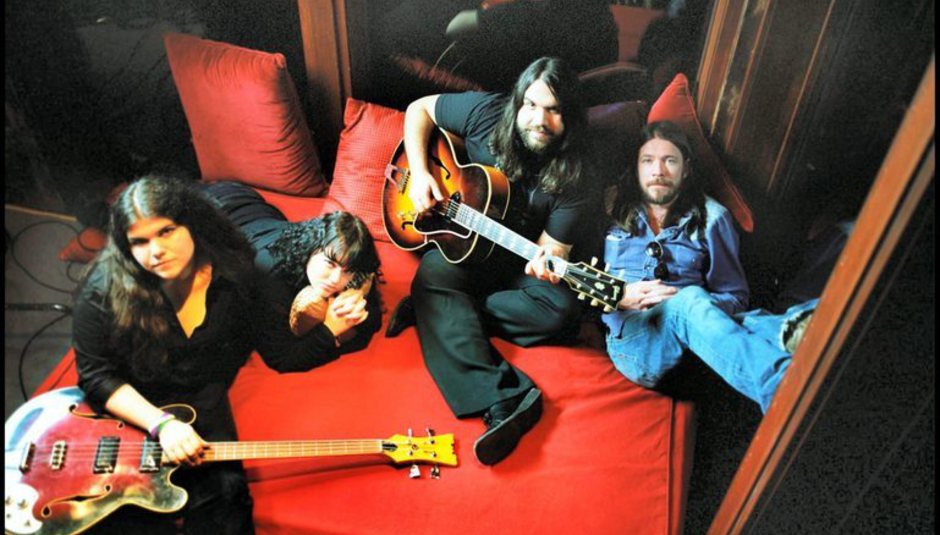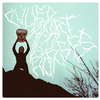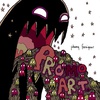The Magic Numbers had two years, two albums and two top #20 entries for those very albums. That was back in 2006. Giving themselves some time off from the grind of touring-recording-touring the band got back together in late 2009 to record the follow-up to 2006's Those The Brokes, working with Icelandic producer of much repute Valgeir Sigurðsson. We caught up with lead singer Romeo Stodart to quiz him on the new record, natter to him about festivals and trying to find out what he's been listening to lately...
DiS: So, the new record The Runway is out at the end of the month, tell us a little bit about it...
Romeo Stodart: It's out on the 26th of July. It's our third album and we recorded it at our own studio which we built just after we finished recording our last album. We worked with Valgeir Sigurðsson, the Icelandic producer who has worked with people with Björk - we were big fans of his. The first two albums were much more live, this one has bigger sounds and much more orchestration. We also worked with Robert Kirby for the string arrangements but he passed away sadly just after we mixed the album. I'd say it's the most realised record we've ever done and we feel like it's the best songs we've ever made and the best record. I hope people love it as much as we do...
DiS: Do you think having a four-year gap between the second and third – as opposed to the first and second albums – made a difference? A chance to get a bit more clarity?
RS: Yeah, I think it did help out, once we stopped touring. You know, we made two albums in two years and having time away to live a bit was great, getting back to life outside of the band was necessary. We didn't want to repeat ourselves – we did what we did with those two albums and wanted to set this one out differently. When I first brought the batch of songs to the group and started working on them, instinctively what we were doing was different – we'd put it down and then say “that's what we'd do normally” so we tried to push ourselves. I think the break was needed, it's a fair time in a studio making the first two albums and now that we have our own studio it's good. It's our place where we can do it wherever we want.
DiS: Did you work on your own terms a bit more this time then?
RS: Yeah, definitely. We didn't have any involvement at all from the record label, and also we didn't even think about anything outside of us, our own studio, it was quite liberating doing that...
DiS: How was working with Valgeir Sigurðsson...were you approached by him or did you go to him?
RS: We'd spoken to him. We'd been recording and it was 50% there and we realised that there was a real kind of atmosphere to the songs and we wanted to kind of push that and he was someone whose records we loved. We'd never really got someone to the studio to actually add something, so it was really cool. He came down and listened to the songs, and obviously he'd mostly worked with solo artists and he was very interested in working with a band. Also to come on board after we'd already started was interesting and he loved the songs. It was cool because he'd come to London every now and then and go away for a week or two, then go away, so we had this whole process. And I love working with Valegeir too, he's a really cool, calm guy...he's now moved to London too, so we get to see him much more.
DiS: It must've been nice to have someone of that experience to bounce ideas off this time?
RS: Yeah, definitely. With Val it works like that. What else is great about it is that he's also very quiet, so when he does actually say something we'd all listen. He had that quality. He works with programming stuff but it never came from outside the box, it all came from outside the studio like using a can as a percussion. When we were doing 'Why Did You Call' we said to him we love the drum pattern but we don't want it to sound like real drums or like a drum machine, we want it to just have a sound like nothing else...obviously, because that's what you do! I want a sound no-one's ever had! So we had the drumkit, the real one and he'd make a loop on top of the drums out of found sounds, so you've got this thing that doesn't sound like anything. It was cool and always fun working that way. I like not knowing what to expect when you start the day.
DiS: How long a period where the songs written over? Quite recently or the whole time that's elapsed since Those The Brokes?
RS: Over the last two or three years we'd been writing a lot. But once we started recording a lot of songs happened and then I think the standard of when you're about to mix all of a sudden three songs appear – because you're not thinking about it. It was just constantly really, I'd written about 30-35 songs over that period. Certain songs lead to other ones and some songs are great but they just didn't fit onto the record. There's some real big single-type songs which didn't feel like they fit with the whole mood of the album...
DiS: Do you think these will all get a release then? If so in what format?
RS: I think with the way things our you can put out a track or on a website, something like that. There's definitely a good few songs which will work, and then there are other songs which I love that by the time we're ready to do something I'm sure they'll fall by the wayside. But definitely there's quite a few that I want people to hear...
DiS: How much of this record have you toured?
RS: We did a small tour before Christmas, just tiny club shows to learn how to play these songs live and that was pretty cool, as there's a lot more instruments on stage now. Then we went over to South America, did some shows in Argentina and ended up in the States and around Europe. Then we've done a few shows just in London, we did one in support of 6Music the other day and now we've got the summer – we're going to Australia and then we've got our UK tour, so from now we're playing the new album which'll be great, I'm really looking forward to it.
DiS: How are the festivals going, you played many yet? Where are you playing?
RS: We're doing Glastonbury, Hop Farm, Tapestry and we've got one this weekend...Gold Coast. But we haven't done any as yet, no.
DiS: Are they something you really look forward to, or can they be as much a grind as the day-to-day touring?
RS: I do look forward to festivals, I like playing them and getting a chance to play around the world is cool but for me it's really about our shows because at festivals you've got 45 minutes to an hour to show what you do and a lot of the time you're not allowed to show all the different sides. But with your own shows you can work more of a dynamic and be more dynamic. With festivals you know that you want to rock the house but you're on limited time. But I like festivals, I'm looking forward to Glastonbury, Hop Farm...there's a lot of good people on that bill.
DiS: Is it nice to play at a festival without any branding like Hop Farm? It must make a change...
RS: Yeah, it's great. I've been to Hop Farm, I went a couple of years ago when Neil Young was headlining and I saw My Morning Jacket, Primal Scream. I love the atmosphere of it so we definitely wanted to play this year. I think it's good, I love those festivals, I love Truck in Oxford which is a family run thing and there's a lot of smaller festivals like End Of The Road and Green Man which are good, there's a good batch...
DiS: You say the new record has a lot more orchestration on, is it something that's difficult to think about how to translate it live, specifically at a festival?
RS: It's been cool. You have to treat it as two different things. For some shows we'll have string sections, there are bits on three albums which have string sections and for the special shows we'll have them included. But it's great. With a tiny club show all you want to do is make sure you make it loud and rocking and work it out like that. Yeah, it was challenging when we started rehearsing to play live. I always think there's a difference between what you play on record and what you do live. I mean, we could go out there with a backing track that has all the stuff on the record, but we don't want to do that...
DiS: Yeah, and people don't want to see a carbon copy...
RS: Yeah, totally. I used to love going to see a band doing an acoustic version of their big hit...
DiS: How do you find festivals abroad? Do you prefer them or home-based ones?
RS: It's always different. I love the unpredictable nature in what we do. Australia's going to be good you turn up there and it's all green and gold. We've done festivals over there before, Big Day Out, and that was cool and very differently run than anywhere else. That's kind of the beauty of it really. It is different, like in Japan the audiences are very different and even in the UK – you got to Scotland and you've got the rowdy crowd. Sometimes in America it can feel a bit like everywhere is the same but I've enjoyed touring America though I've been to gigs a few times where it's a similar sort of reaction.
DiS: What music have you been listening to when writing the new album?
RS: Well I always listened to the Leonard Cohen, the Tom Waits, they are like my songwriters. But I also listen to a lot of soul music, I guess that comes across in some things, like Al Green and I love the strength of those Marvin Gaye records, it's still in my head that I could do and want to do stuff like that. I want to do an orchestral soul album really. Fleetwood Mac definitely, I can hear the Fleetwood Mac influence – it got in there somehow – they are one of those bands that we always listen to on the bus and I love that period Stevie Nicks. But I listen to a lot of world music as well, a lot of African and Brazilian stuff. I can personally hear little things from that time, playing the guitar in the same way but I think overall that musical influence is not thinking too much, being effortless, maybe more in the approach...lots of new stuff as well, like the Villagers record. The new Laura Marling...there's also a Swedish singer Anna von Hausswolff.
DiS: do you try very hard to keep up with it all? It must be hard being on tour?
RS: Yeah, I guess with Spotify you can listen to stuff that you read a review of or if someone says you should check it out. I'm always buying records, to be honest. More vinyl – a lot older, 60s and 70s stuff. I found this great group in Sweden, two sisters called First Aid Kit who are great, they play with really close harmonies and they remind me of Roaches, who I love. So yeah, you get to see different things I got it from shop in Stockholm, Pet Sounds in Stockholm where the guys are always recommending stuff, which is what you want really.
The Magic Numbers release their third studio album, The Runaway on June 26. They play Hop Farm Festival on Saturday July 2.






















